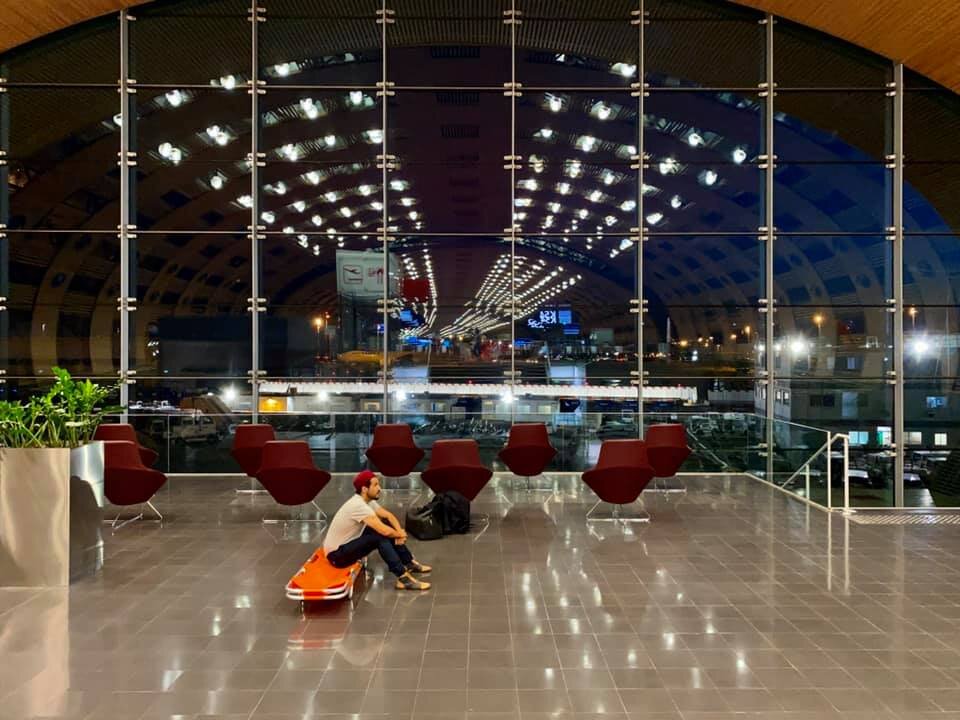Where do we belong
In early March, Mark Gonzales, Chair of the Department of the Future and Fellow at the Kennedy Center, left Tunisia for the U.S. on what was supposed to be a 10 day trip; he was collaborating on the design and launch of an Arts & Society incubator at Stanford University and then speaking about the future of schools at SXSW. Twelve hours after landing in San Francisco, his meetings were moved online; two hours after that, SXSW was cancelled. For the next almost 2 ½ months, Mark has been trying to get back to his family in Tunisia, complicated by the quickly developing pandemic, cancelled flights, travel bans, flight restriction, and Covid lockdowns. In early May, Mark posted the eye-catching photo below of himself in an empty Charles de Gaulle airport in Paris; unable to leave the airport or get on a flight to Tunisia, he was stranded there for days. I messaged him on Facebook and introduced my blog; I knew I had to hear his reflection. I had a chance to speak with Mark yesterday, as he was in the final days of his quarantine in a hotel in Tunisia, an hour and a half flight from home. Here’s his reflection, for our time. For me, at this moment in human history, more so than at any other moment, everyone is lifting the importance of family, across every nation. Yet, while we’re speaking of it, the societies we live in do not necessarily reflect that importance yet. The laws of our societies are built upon color-coded passports and the concept that you have to pick one nation, one home. And many of us have lived, and loved, in the idea of a global citizenship; our children are proof of relationships across countries and across oceans. And yet when the world shuts down, we’re still asked to pick one.I am just one of many families that is facing separation because of a world that acknowledges it’s interconnected, yet hasn’t lifted that up as a value yet. This is our reality; we live between the U.S. and North Africa. Our company works in both countries and others. My daughter is five and is learning her fourth language and has three passports; my other daughter is two and is learning three languages at the same time - due in large part to a mother who speaks 8 languages and has a background in linguistics and business.But where do we belong in a world that says you can only pick one.As a person that works in innovation, how powerful is this global moment to innovate belonging – both in terms of our hearts and how we see ourselves as well as in our laws.We believe that our children deserve a world of possibilities, and our responsibility as parents is to say you don’t have to choose. We’ll shape a world that allows you to innovate and to thrive.We will shape a world that accepts all parts of you.Before we ended our conversation and I wished Mark a very wonderful Eid with his family, he shared another very interesting reflection – the story of how a country takes care of its people in crisis.We don’t hear this story enough – the really human centered response to Covid in Tunisia, in terms of housing people in repurposed hotels, making sure everyone coming in gets tested for Covid within a week, feeding people suhoor and iftar, without cost. This in a country that suffered under a crippled economy for the last six years. (There have been about 90 deaths in Tunisia, and 1100 cases – in a population of 11 million.) This really has been a highlight, especially when we think about who needs help at this time. Sometimes we’re looking at the wrong places for solution and inspiration.Please follow Mark's journey on Instagram and Facebook @markgonzalesco.UPDATE: Just got a message from Mark as I'm posting this, he's HOME!! :-) (5/22, 11am est) To read all '30 reflections for our times', please follow the Facebook page '30 days 30 deeds', Instagram @salmahasanali, or subscribe to the newsletter at www.salmahasanali.com.
To read all '30 reflections for our times', please follow the Facebook page '30 days 30 deeds', Instagram @salmahasanali, or subscribe to the newsletter at www.salmahasanali.com.

